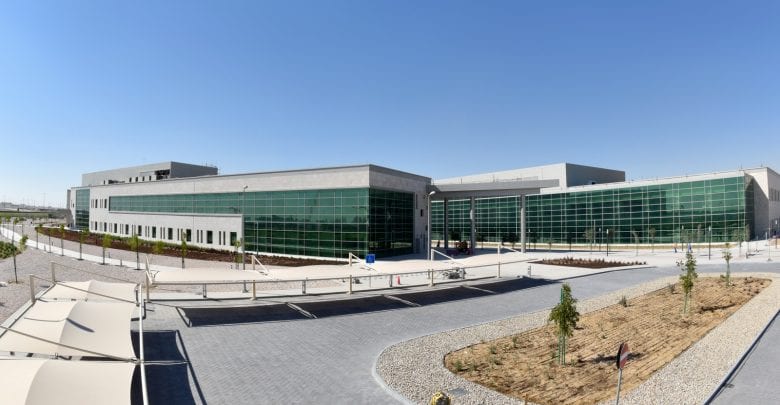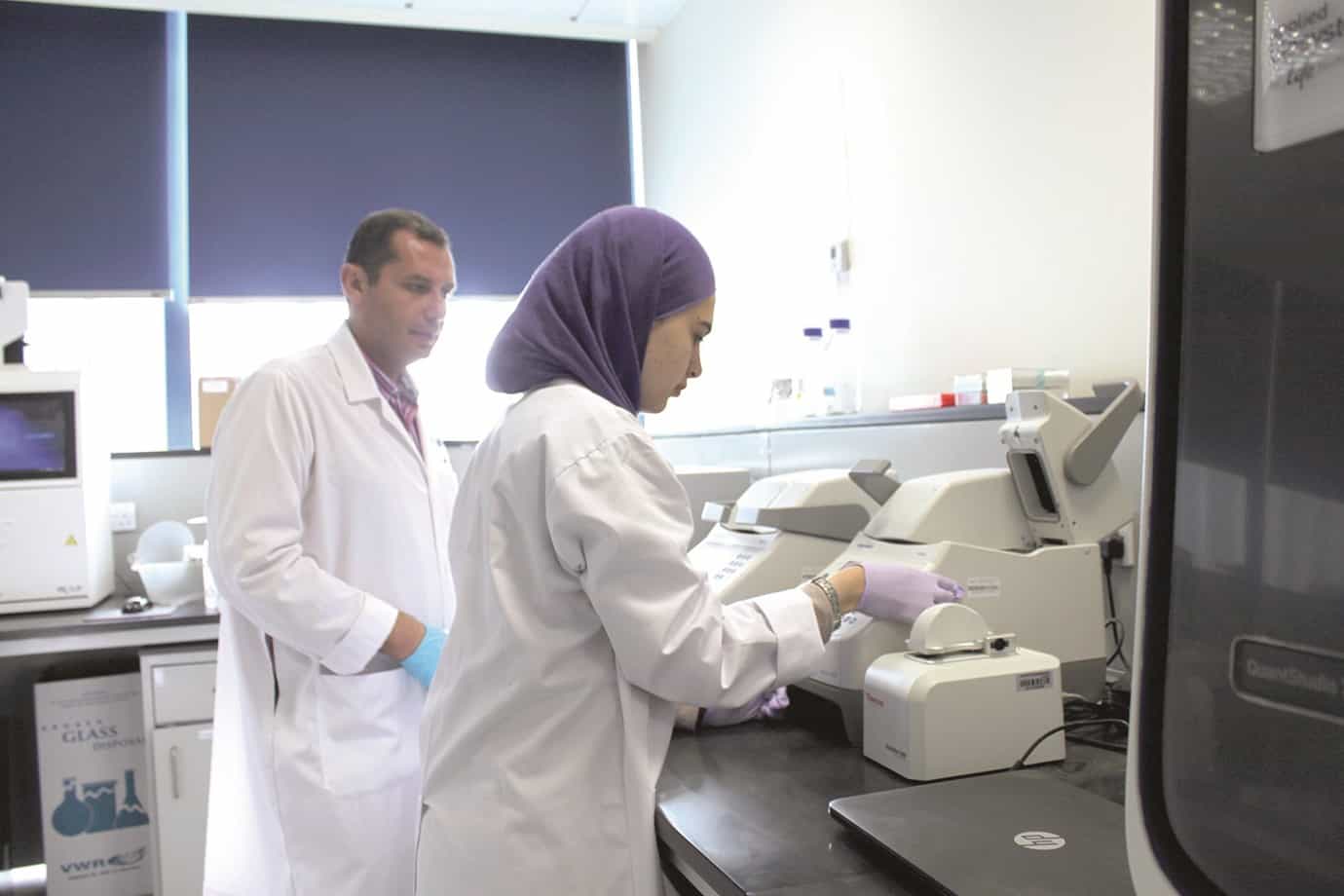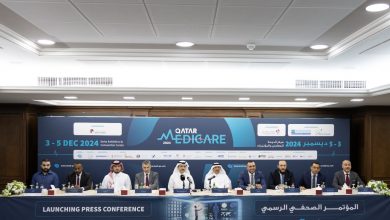
QBRI to boost region’s first cell-therapy for diabetes
شراكة بين «جامعة حمد» و«هارفارد للخلايا الجذعية»
DOHA: Qatar Biomedical Research Institute (QBRI), a premier research institute under Hamad Bin Khalifa University (HBKU), has signed a collaborative research and training agreement with the Harvard Stem Cell Institute (HSCI) in Boston, USA.
The five-year initiative includes technical training and research in stem cell biology, which are essential for discovering viable treatments for diabetes, said a release.
The prevalence of diabetes type 1 and 2 is a rising global healthcare challenge. Recent advances in stem cell research, led by HSCI scientists, are set to help both type 1 and type 2 diabetes patients cope with their condition by producing new insulin-producing cells. Such advances can be extended to address many diseases that have a major impact on society.
In this new collaboration, QBRI scientists will work closely with HSCI researchers to exchange knowledge and best practice, and to accelerate the translation of discoveries into clinical applications. In addition to building scientific capacity in the region, the partnership will support ground-breaking research in stem cell biology. Clinical trials that arise from these endeavours will be conducted in collaboration with QBRI’s major stakeholders, including Hamad Medical Corporation and Sidra Medicine.
“This partnership with HSCI is another step towards our primary goal of conducting research that has tangible, meaningful impact on the wider community. Innovation and entrepreneurial vision are at the core of QBRI’s activities. This partnership with leading stem cell researchers at Harvard is a crucial step in spurring progress towards our strategic vision, to solve some of the critical challenges facing Qatar and the region. Thanks to this agreement, newly recruited investigators at QBRI will be engaging in research within the largest collaborative network of stem-cell researchers in the world,” said Dr Omar El Agnaf, acting executive director at QBRI.
HSCI – a network of 1,000 scientists at Harvard University and its eight affiliated hospitals – is a champion of research in stem cell biology and regenerative medicine. It is a powerful partner for realising QBRI’s strategic plan to develop the first cell-therapy program in the region.
Brock Reeve, executive director of HSCI, said: “Qatar has been proactive in building scientific capacity in the Middle East, and its current focus on stem cell biology shows its commitment to supporting progress in personalised medicine. Partnering with QBRI allows us to share knowledge and expertise efficiently through advanced training, and to conduct meaningful research with a focus on translation. We are really looking forward to working together, and to seeing what new opportunities for discovery arise as a result.”
QBRI aims to address major health challenges over the long term by supporting scientific research into the molecular basis of various diseases, and biomedical research that seeks to translate those insights into solutions for diabetes, neurological disorders, and cancer. The partnership with HSCI will facilitate progress in these areas.
Research is integral to HBKU’s mission to help build high-level skills capacity in Qatar. This new partnership allows the university to actively leverage synergies with local and international organizations to foster a world-class education ecosystem that promotes scientific discovery and benefits humankind.
وقّع معهد قطر لبحوث الطب الحيوي -أحد المعاهد البحثية الرائدة التابعة لجامعة حمد بن خليفة- اتفاقية للتعاون البحثي والتدريب مع معهد هارفارد للخلايا الجذعية، الكائن بمدينة بوسطن الأميركية. وتشتمل هذه المبادرة -التي تستمر لمدة 5 سنوات- على برامج مهمة للتدريب التقني والتعاون البحثي في مجال بيولوجيا الخلايا الجذعية، بهدف التوصل إلى طرق علاج ناجعة لداء السكري.
وبموجب الاتفاقية، سيتعاون علماء معهد قطر لبحوث الطب الحيوي عن كثب مع الباحثين في معهد هارفارد للخلايا الجذعية، بهدف تبادل المعارف وأفضل الممارسات الطبية، فضلاً عن تسريع ترجمة الاكتشافات إلى تطبيقات سريرية عملية. كما ستساهم هذه الشراكة في بناء القدرات العلمية بالمنطقة، إلى جانب دعم المشاركة في الأبحاث الرائدة. وستُجرى التجارب السريرية الناتجة عن تلك المساعي بالتعاون مع أبرز الجهات المعنية التي تتعاون مع معهد قطر لبحوث الطب الحيوي، ومن بينها مؤسسة حمد الطبية و»سدرة للطب».
ويمثّل انتشار النوعين الأول والثاني من مرض السكري أحد أبرز التحديات الصحية على مستوى العالم. ولهذا السبب، من المتوقع أن تساعد التطورات الأخيرة في أبحاث الخلايا الجذعية -التي يقودها علماء من معهد هارفارد- مرضى السكري من النوعين الأول والثاني على التعامل مع حالتهم والتغلب على المرض، عبر تنمية خلايا جديدة منتجة للإنسولين. ويمكن توسيع نطاق هذه الأبحاث المتطورة للتعامل مع العديد من الأمراض التي تؤثر سلباً على المجتمع.
وقال الدكتور عمر الأجنف، المدير التنفيذي بالإنابة لمعهد قطر لبحوث الطب الحيوي: «تشكّل الشراكة مع معهد هارفارد للخلايا الجذعية خطوة أخرى نحو تحقيق هدفنا الرئيسي، المتمثل في إجراء أبحاث لها تأثير مفيد وملموس على المجتمع. يُعدّ الابتكار وروح المبادرة في صميم أنشطة معهدنا، وستساعد هذه الشراكة مع واحدة من المؤسسات الرائدة في مجال أبحاث الخلايا الجذعية في تعزيز رؤيتنا الاستراتيجية، للعمل على إيجاد حلول لبعض التحديات الملحّة التي تواجه دولة قطر والمنطقة. وبفضل هذه الاتفاقية، سيشارك الباحثون المعيّنون حديثاً في معهد قطر لبحوث الطب الحيوي، في أبحاث رائدة ضمن أكبر شبكة للتعاون في مجال أبحاث الخلايا الجذعية في العالم».
ويُعدّ معهد هارفارد للخلايا الجذعية من المؤسسات الرائدة عالمياً في أبحاث الخلايا الجذعية والطب التجديدي، حيث يضم تحت مظلته شبكة فريدة مكونة من حوالي 1000 عالم من العاملين بجامعة هارفارد، بالإضافة إلى 8 مستشفيات تابعة لتلك الجامعة الأميركية المرموقة. ويشكّل المعهد بذلك شريكاً قوياً لدعم الخطة الاستراتيجية لمعهد قطر لبحوث الطب الحيوي، المتمثلة في تطوير أول برنامج للعلاج بالخلايا في المنطقة بدولة قطر. وقال بروك ريف، المدير التنفيذي لمعهد هارفارد للخلايا الجذعية: «تُعدّ دولة قطر نشطة في بناء القدرات العلمية في منطقة الشرق الأوسط، ويُظهر تركيزها الحالي على بيولوجيا الخلايا الجذعية التزامها بدعم مظاهر التقدم في مجال الطب الشخصي».
وأضاف: «تتيح شراكتنا مع معهد قطر لبحوث الطب الحيوي إمكانية تبادل المعرفة والخبرات بكفاءة، من خلال برامج التدريب المتطورة، فضلاً عن إجراء أبحاث هادفة، مع التركيز على ضرورة ترجمة تلك الأبحاث إلى نتائج ملموسة على أرض الواقع. ونحن نتطلع حقاً إلى التعاون معاً، والتعرف على الفرص الجديدة، لاكتشاف طرق علاجية ناجحة قد تنجم عن هذا التعاون».;




